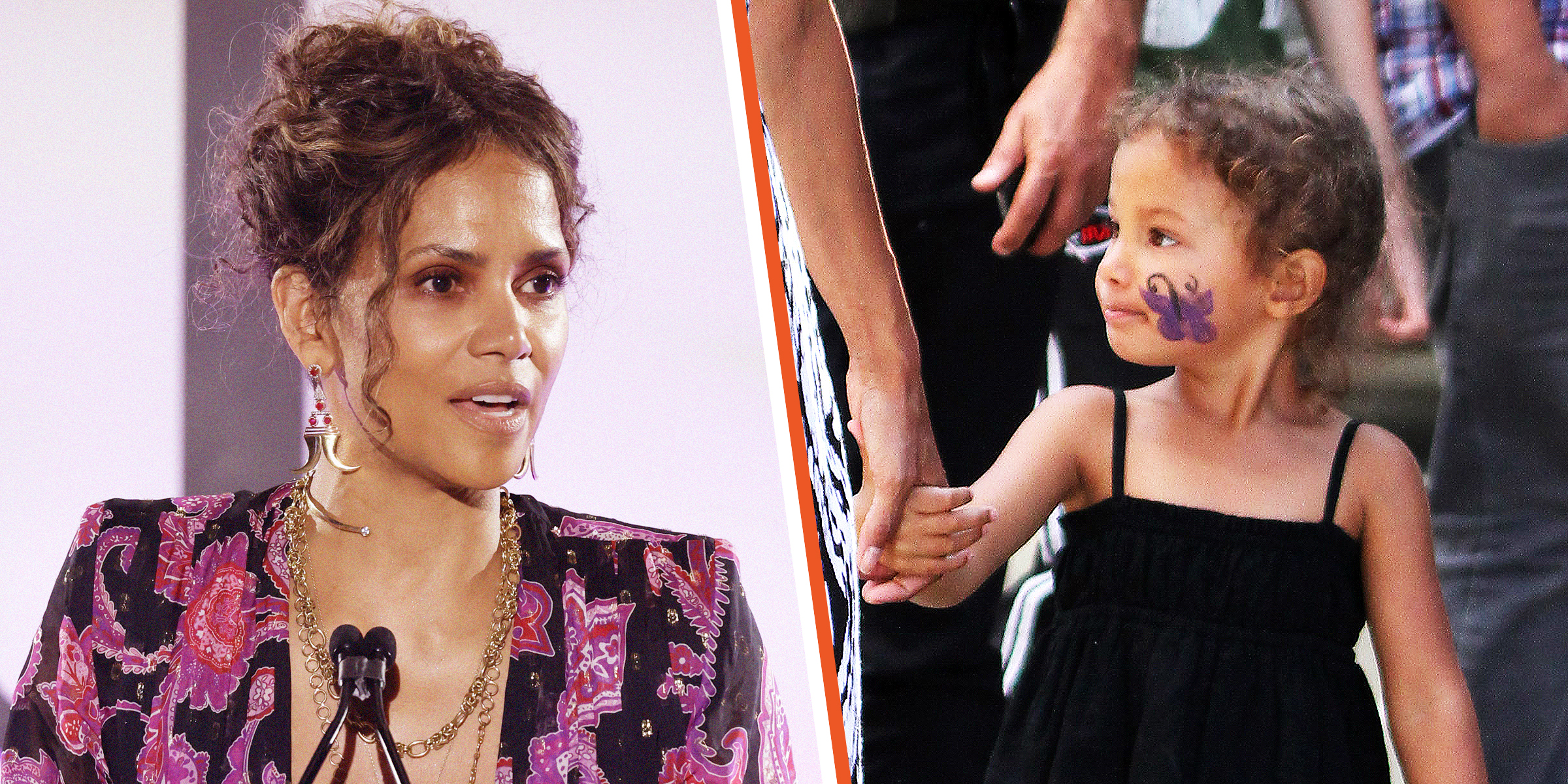
Halle Berry Was Accused of Cutting Ties with Afro-American Family Yet She Considers Her Daughter ‘Black’
- Halle Berry is a Hollywood star who has faced many challenges and controversies in her personal life, especially regarding her Afro-American roots and identity.
- There are three aspects of her life that reveal her struggles and triumphs as a biracial woman and a mother.
Halle Berry is one of the most successful and versatile actresses in Hollywood, with a career spanning over three decades and more than 50 films. She is also a trailblazer for Afro-American women in the entertainment industry, as she was the first woman of color to win an Academy Award for Best Actress for her role in "Monster's Ball" (2001).
Berry was born on August 14, 1966, in Cleveland, Ohio, to an African American father and a white mother. She grew up in a predominantly white neighborhood and faced racism and discrimination from an early age.
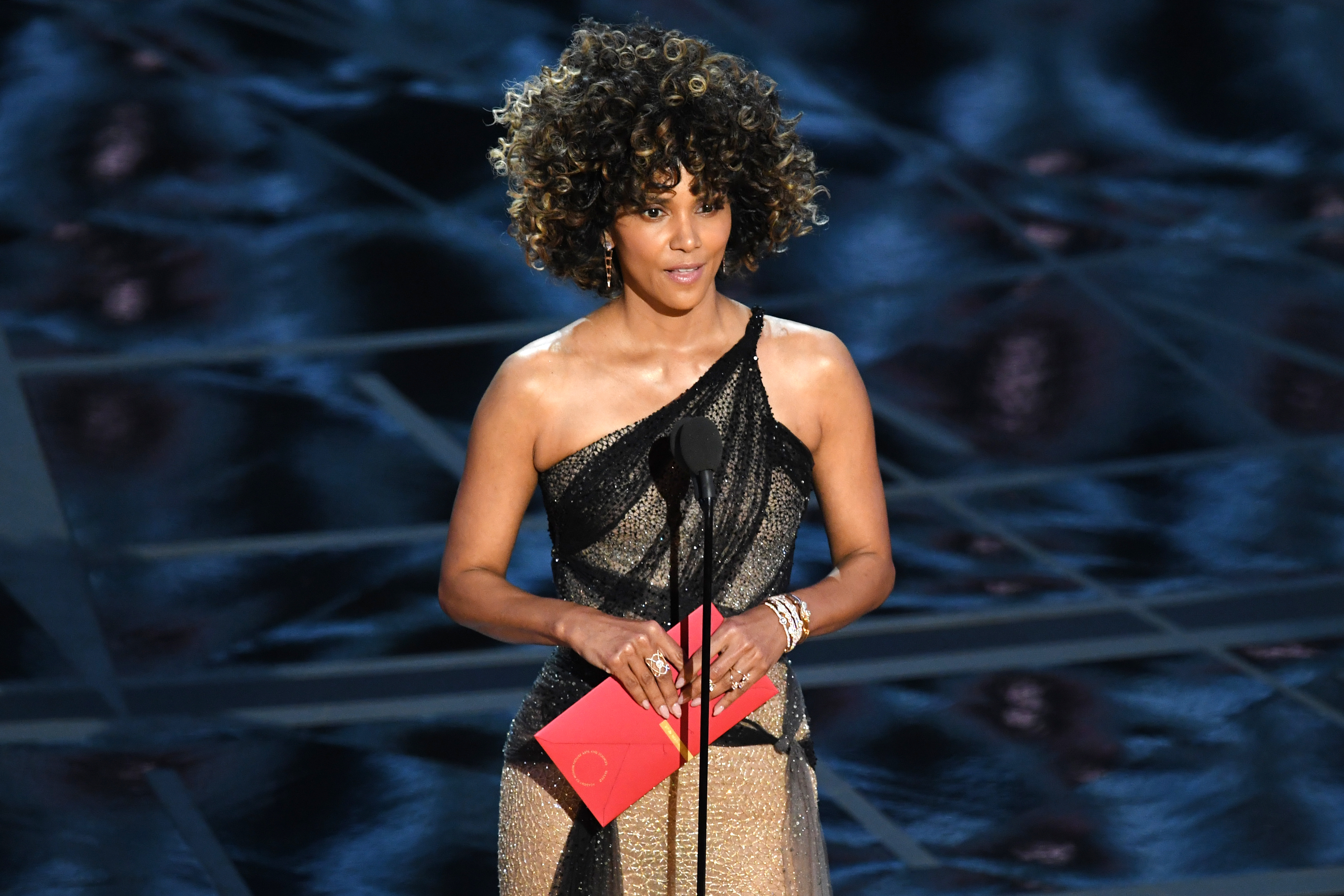
Halle Berry during the 89th Annual Academy Awards on February 26, 2017 in Hollywood, California | Source: Getty Images
This discrimination and her mother's resilience and strength, as she raised Berry and her sister as a single parent after divorcing her abusive husband, fueled her desire to excel in life.
Berry developed a passion for acting and modeling as a teenager and won several beauty pageants before pursuing her dream of becoming an actress. She moved to New York City in 1989 and landed her first acting role in the television series "Living Dolls."
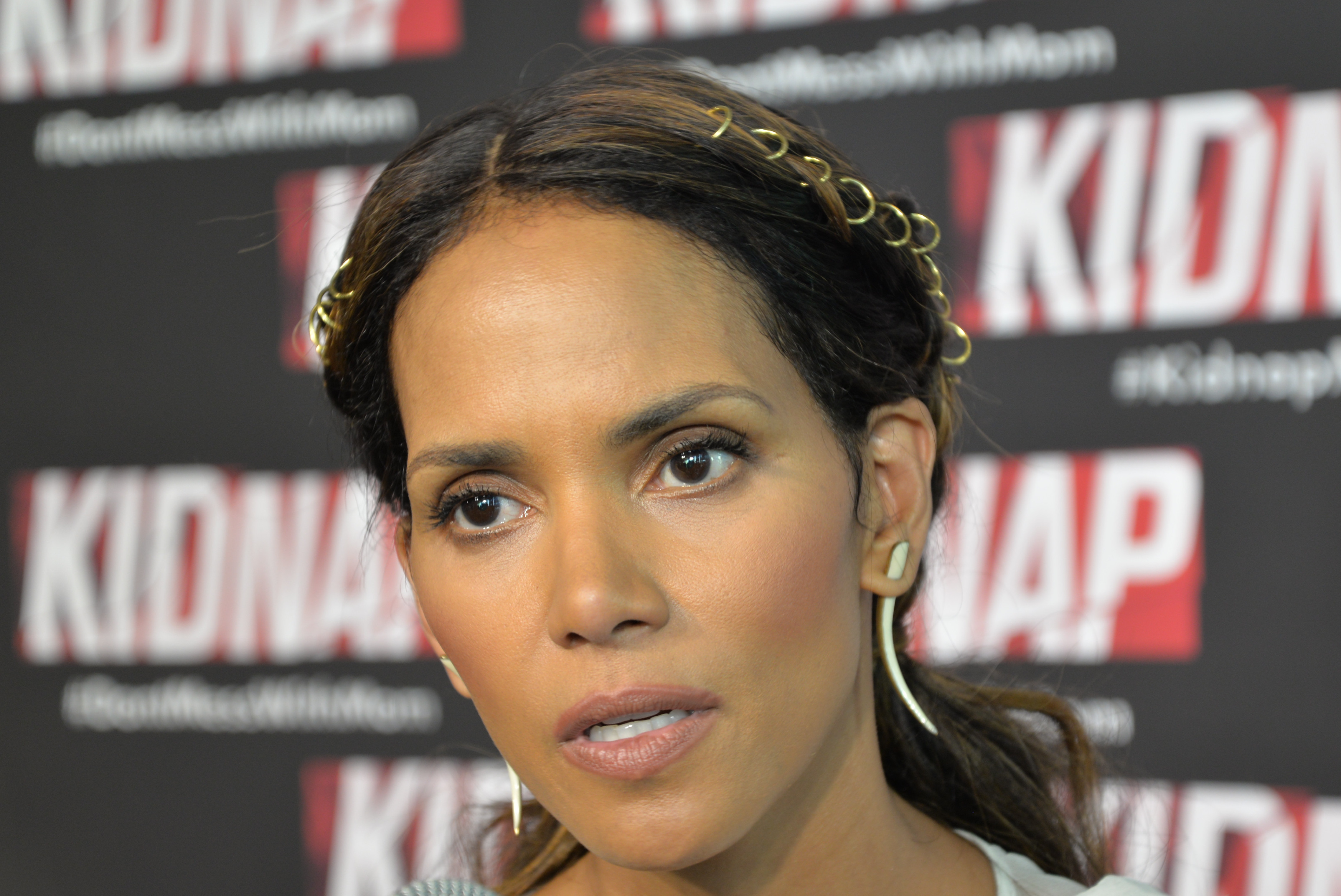
Halle Berry at the premiere of "Kidnap" on July 24, 2017 in Miami Beach, Florida | Source: Getty Images
Since then, she has starred in a variety of genres, from comedy to drama to action, and has earned critical acclaim and numerous awards for her performances. Some of her most notable films include "Boomerang" (1992), "X-Men" (2000), "Swordfish" (2001), "Die Another Day" (2002), "Catwoman" (2004), "Cloud Atlas" (2012), and "Kidnap" (2017).
Berry is also a producer, director, and activist who has used her platform to raise awareness and support for various causes, such as domestic violence, diabetes, and diversity in Hollywood. She is a mother of two children and continues to challenge herself and inspire others with her talent and charisma.
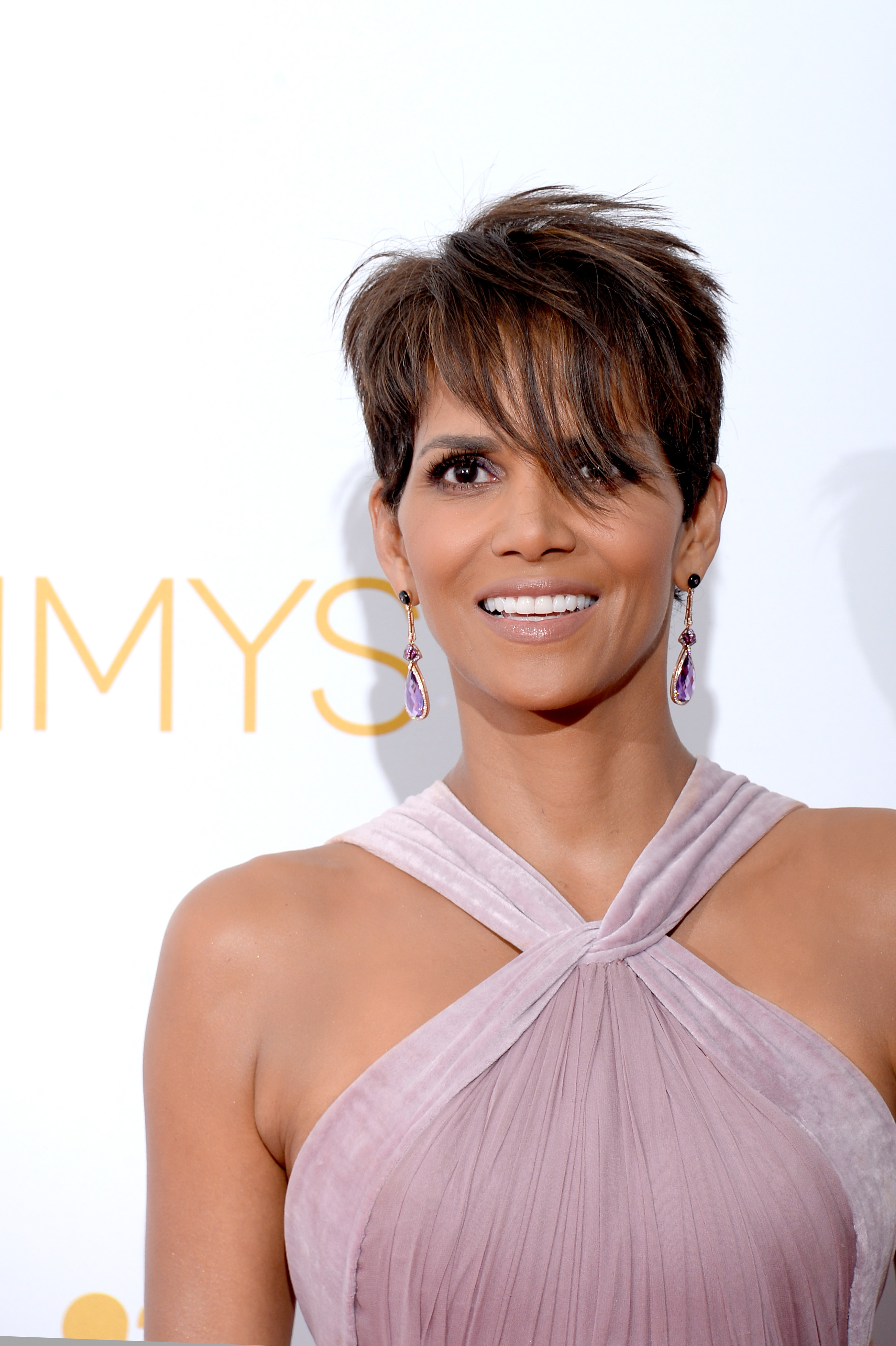
Halle Berry during the 66th Annual Primetime Emmy Awards on August 25, 2014. | Source: Getty Images
Halle Berry's Estranged Sister Accuses Her of Cutting off Her Afro-American Family
Berry may have made headlines due to her fame and fortune as an actress, but she has also faced some challenges and controversies in her personal life. One of them is her strained relationship with her older sister, Renée Berry, who stepped forward to shed light on their situation.
Renée, a food service worker from Alabama, is the daughter of Berry's father, Jerome Berry, from his first marriage. In 2011, she accused Berry of cutting off ties with the African-American side of their family and denying them access to her life, claiming she had not spoken to Berry for years. She said:
"I'm sad to say it seems like she does not want anything to do with us. I have not spoken to her in about five years."
This family matter came under scrutiny at a time when Berry was in the midst of a high-profile custody battle with her ex-boyfriend over their daughter, Nahla Aubry. The familial divide could be traced back to their shared father and his previous relationship with Renée's mother, Edwina Taylor, who separated from him shortly before he began dating Berry's mother, Judith Hawkins.
These revelations offered a glimpse into the painful memories that shaped Berry's advocacy against domestic violence and her dedication to supporting victims through her involvement with the Jenesse Center, a prominent domestic violence intervention program in Los Angeles.
Despite their parents' separation, Berry and Renée had been close during their formative years. Renée expressed her deep desire to reconnect with her famous sister, especially during the trying times Berry faced in the courts. Renee's attempts to contact Berry through her website to congratulate her on her Oscar win reportedly went unanswered, leaving her with a sense of sadness and confusion.
The lack of communication left the family yearning to meet Berry's daughter and understand the reasons behind Berry's apparent disconnection from her Afro-American heritage. Renée said:
"We would love to meet Nahla. We are desperate to understand why Halle is so upset, why she feels she cannot be with us."
During interviews in 2009 and the early 2010s, Berry had publicly spoken about her challenging childhood experiences, alleging that her father was a violent alcoholic who abused her mother, Judith, in the presence of Berry and her elder sister, Heidi.
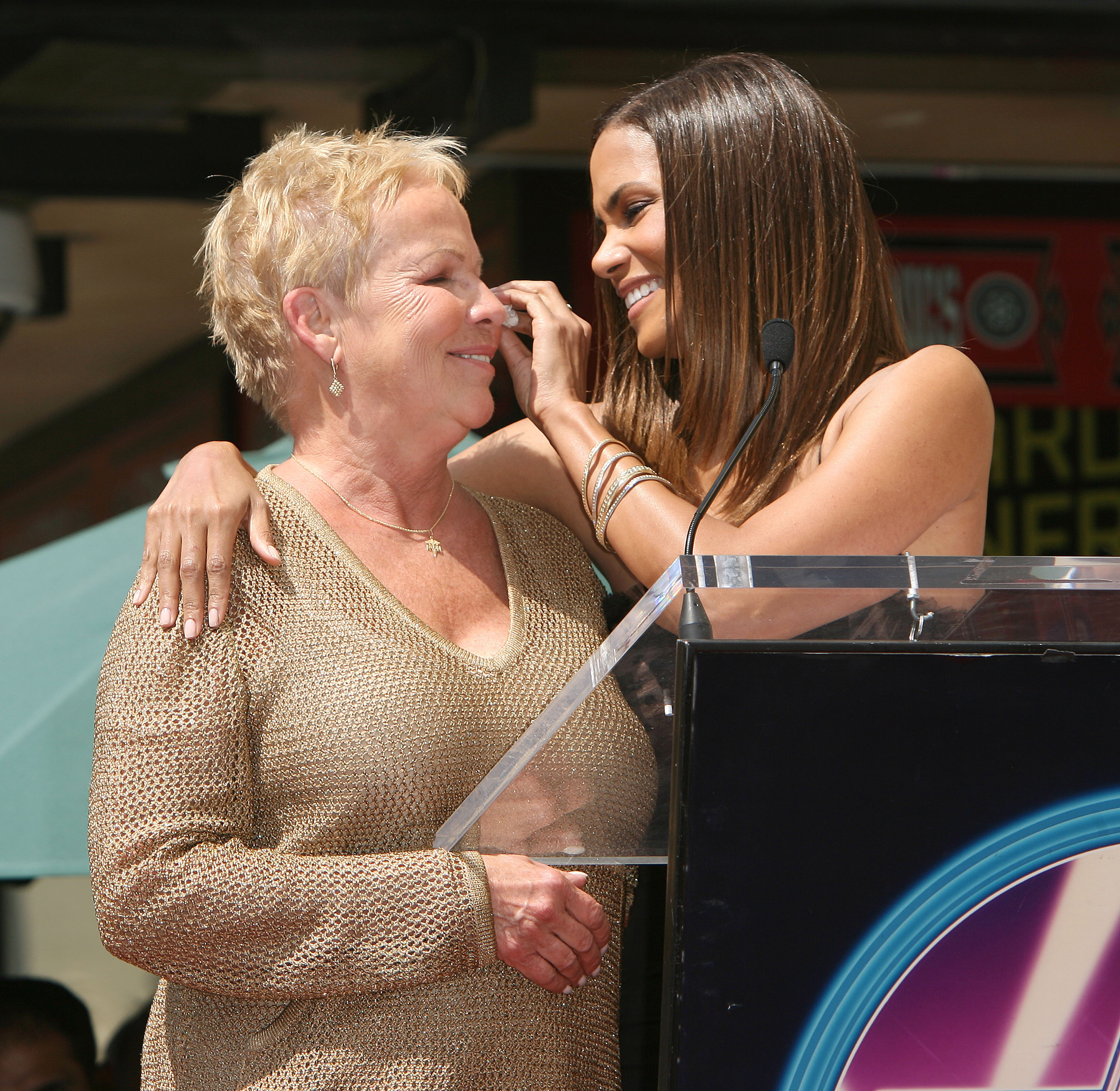
Halle Berry and her mother Judith Berry at Hollywood Boulevard | Source: Getty Images
She also revealed that her father was an alcoholic and a tyrant who left them when she was four years old. She said that she saw her mother battered and could not do anything to stop it and that she felt the effects of that trauma on her family.
One particular incident that exacerbated the divide between Berry and Renee was a public plea made by Renée to visit their ailing father during his battle with Parkinson's disease.
These revelations offered a glimpse into the painful memories that shaped Berry's advocacy against domestic violence and her dedication to supporting victims through her involvement with the Jenesse Center, a prominent domestic violence intervention program in Los Angeles.
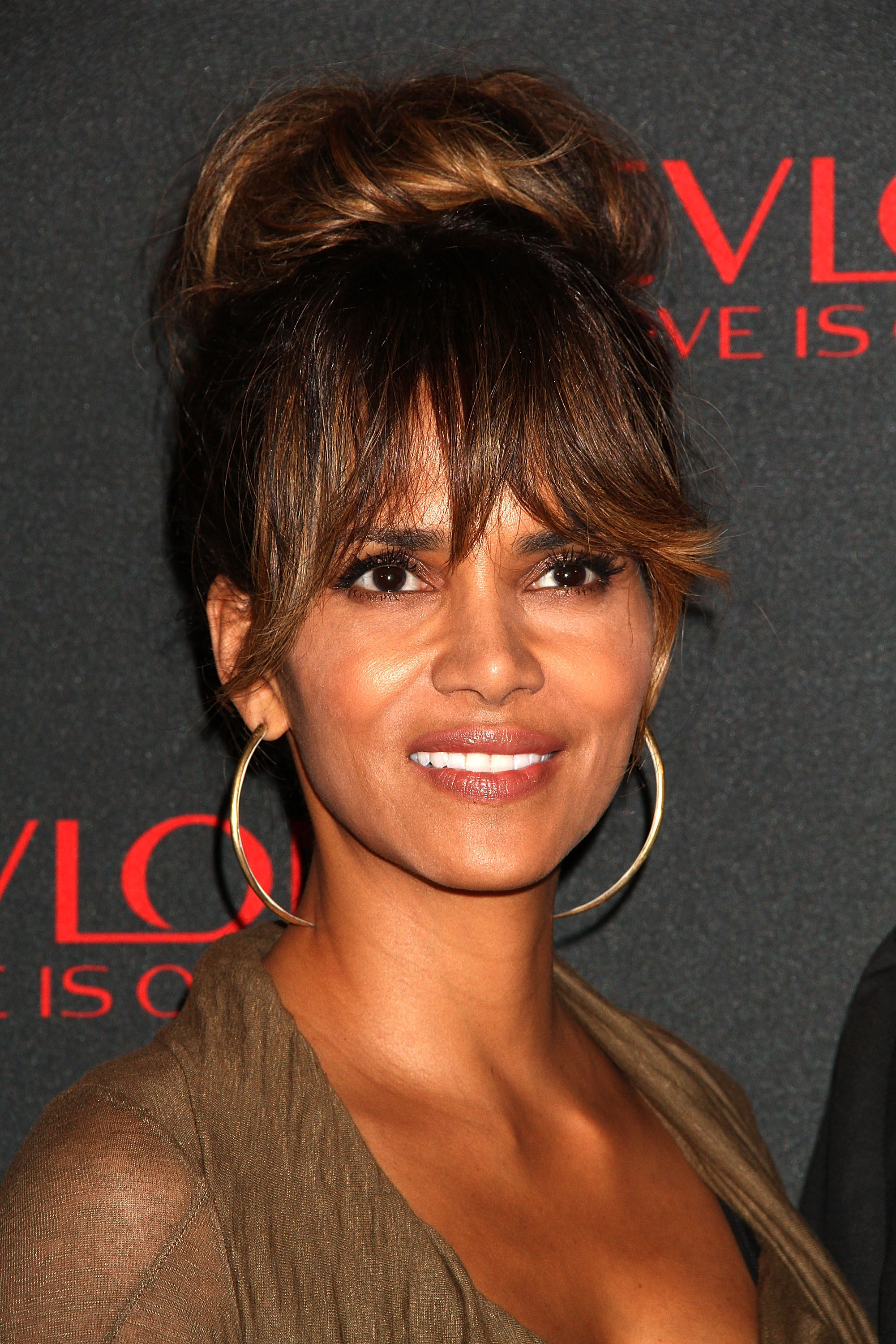
Halle Berry on November 18, 2015 in New York City | Source: Getty Images
Renée, on the other hand, had a very different perspective on their father, portraying him as a "good man" who would occasionally administer discipline but never subjected them to abuse or violence. This contrasting view added complexity to the already delicate relationship between the sisters. In 2009, Halle shared:
"I'm a victim of domestic violence. I wasn't married to a man that beat me up, but my mother was."
One particular incident that exacerbated the divide between Berry and Renée was a public plea made by Renée to visit their ailing father during his battle with Parkinson's disease. Berry reportedly expressed her displeasure over this action, further straining their already fragile bond.
The passage of time has not revealed whether Berry and Renée have managed to reconcile their differences over the years. The estrangement from her Afro-American family represents a poignant chapter in Berry's life, intertwined with the scars of witnessing domestic violence during her formative years.
Berry Refers to Her Daughter from Her White Ex-boyfriend as "Black" and Rocks Her Afro-American Curls
Berry may have faced some criticism from her sister and others for allegedly cutting off her Afro-American family. But she demonstrates a deep pride in her roots and identity, especially when it comes to her daughter Nahla, whom she shares with her former boyfriend, Gabriel Aubry, who is of white heritage.
Berry proudly referred to Nahla as "black" due to her belief in the one-drop rule, a historical concept that considers anyone with even a trace of African ancestry as black in America. For Berry, Nahla's racial identity goes beyond mere appearance; it is about how she experienced the world and how the world saw her. Berry stated:
'I feel like she's black. I'm black, and I'm her mother, and I believe in the one-drop theory.'
Berry's view on her daughter's racial identity caused some tension with Aubry, who reportedly "went nuts" whenever anyone would refer to their daughter as "black." He argued that Nahla should not be labeled as black or white but as mixed-race and that Berry was trying to erase his contribution to their daughter's heritage.

Halle Berry with ex Gabriel Aubrey at Calvin Klein's 40th anniversary party at the Highline | Source: Getty Images
In November 2014, Berry took Aubry to court, accusing him of chemically bleaching and straightening their daughter's natural curls and brown color. The former couple was involved in a bitter custody battle over Nahla after their split in 2010, and their disagreement over their daughter's race had been one of the main issues.
Berry's pride in her Afro-American roots extends to her appearance, as she often confidently embraces her natural curls both on and off the screen.
Another issue that sparked tension between Berry and Aubry was their different interpretations of the custody agreement they had signed. There was a provision in the agreement that dealt with how much time each of them got to spend with Nahla when Berry shot a movie.
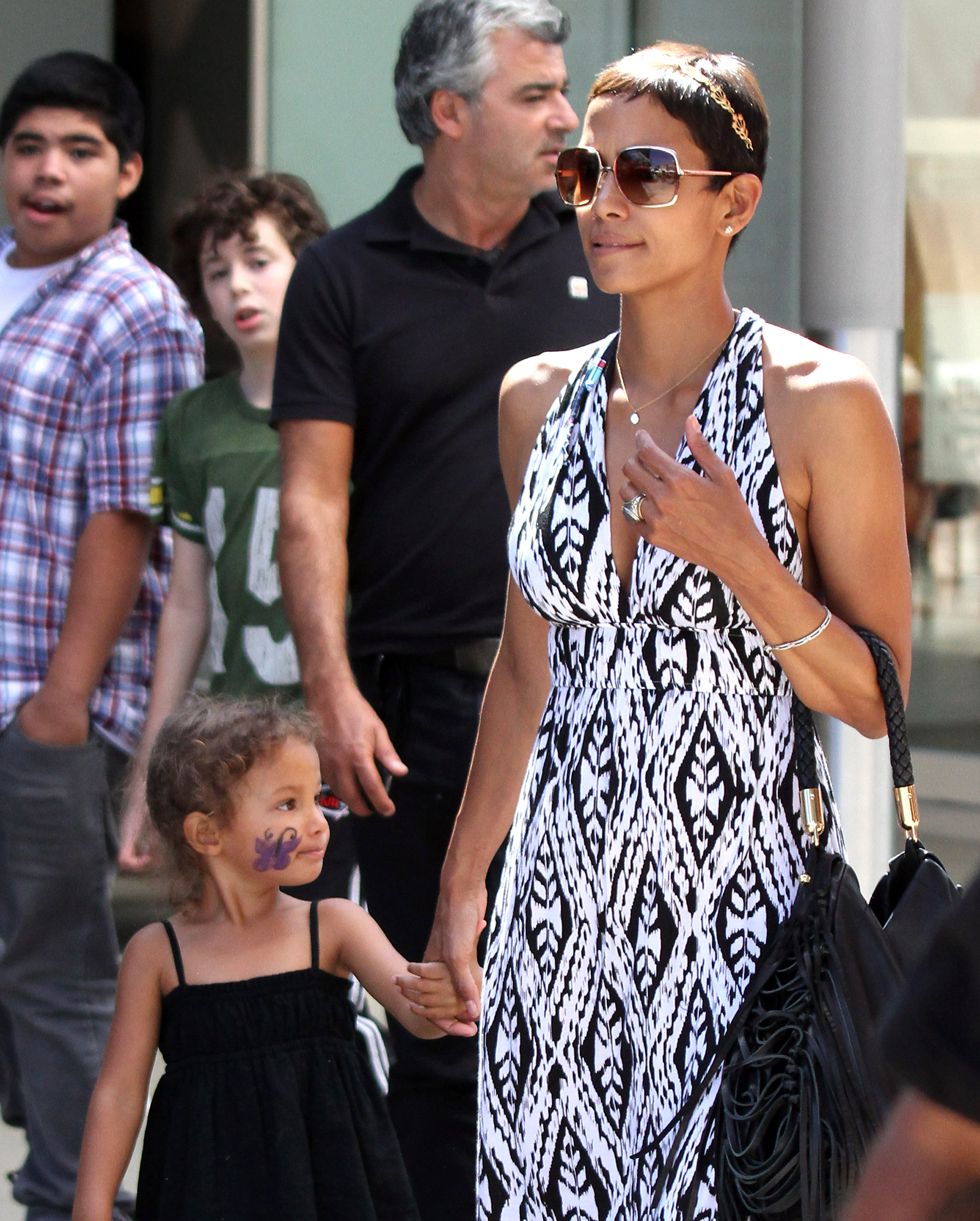
Halle Berry and daughter Nahla Aubry on July 26, 2011 in Los Angeles, California | Source: Getty Images
Berry was going to Europe to shoot a flick, and Aubry wanted more time with Nahla while she was away. However, Berry and her lawyers prevailed in court, as the judge agreed with Berry's interpretation of the "movie clause," meaning that Aubry wasn't going to get as much time with Nahla as he had wanted.
In her defense, Berry drew from her own experiences as a biracial woman raised by her white mother. She identified as black because that was how society treated her, even though her appearance may have leaned more toward her Caucasian heritage. Having attended an all-white school, Berry said that she and her sister got called "Oreos" due to their mixed heritage.
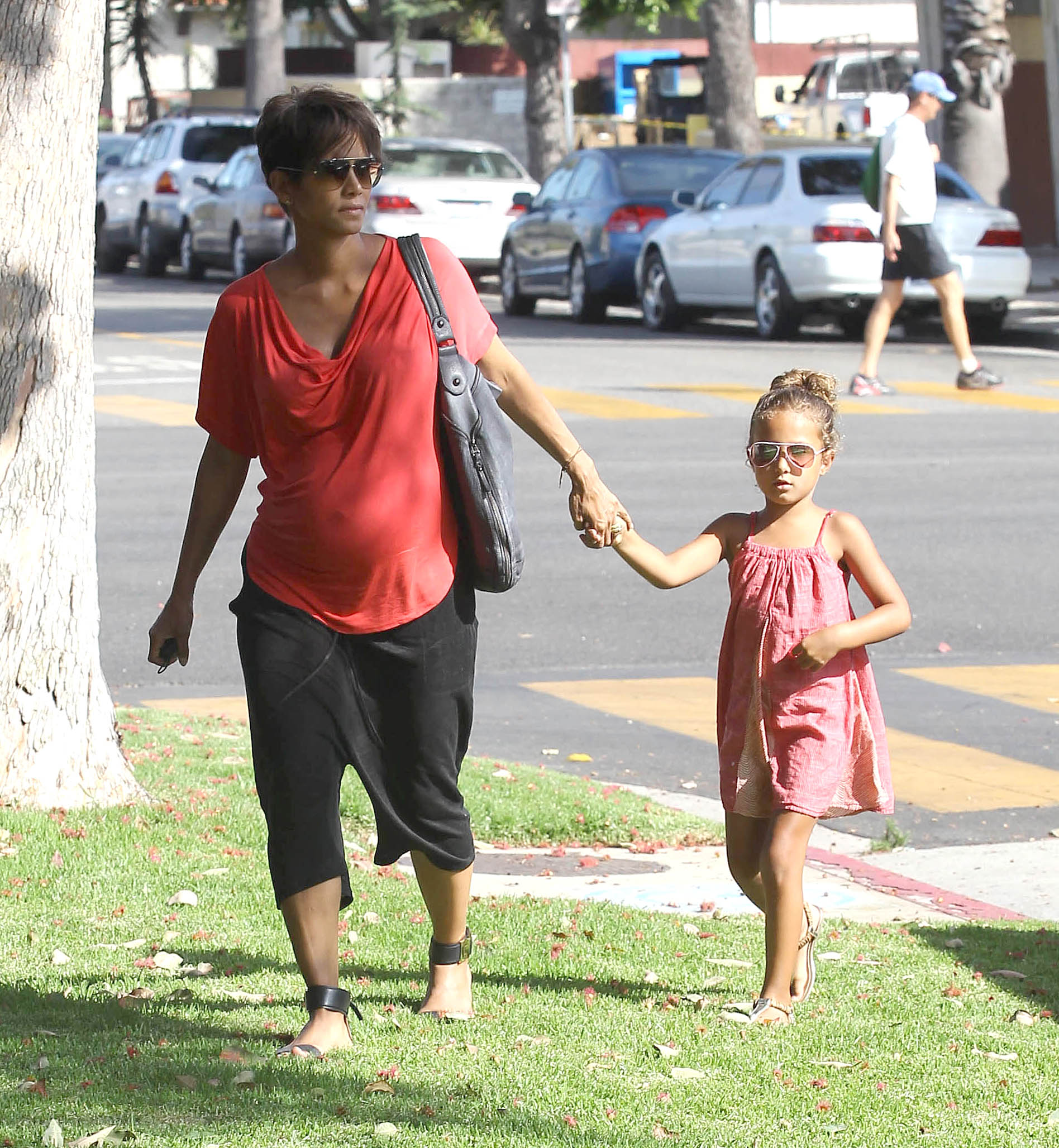
Halle Berry and her daughter Nahla Ariela Aubry on July 23, 2013 in Los Angeles, California | Source: Getty Images
Berry's goal was not to deny any part of Nahla's heritage but rather to celebrate all aspects of her identity. She believed that Nahla should have the freedom to decide for herself how she wanted to identify in the future, but, for the time being, Berry felt that Nahla was black.
Berry's pride in her Afro-American roots extends to her appearance, as she often confidently embraces her natural curls both on and off the screen. While she has experimented with various hairstyles throughout her career, she proudly showcases her curly texture and volume, saying that they made her feel more authentic and self-assured.
She is also a woman who is proud of her Afro-American roots and identity and who wants to pass on that pride to her daughter. Berry's determination to embrace her identity and celebrate diversity sends a powerful message to the world—that beauty comes in many forms, and being true to oneself is a mark of strength and authenticity.
news.AmoMama.com does not support or promote any kind of violence, self-harm, or abusive behavior. We raise awareness about these issues to help potential victims seek professional counseling and prevent anyone from getting hurt. news.AmoMama.com speaks out against the above mentioned and news.AmoMama.com advocates for a healthy discussion about the instances of violence, abuse, sexual misconduct, animal cruelty, abuse etc. that benefits the victims. We also encourage everyone to report any crime incident they witness as soon as possible.
